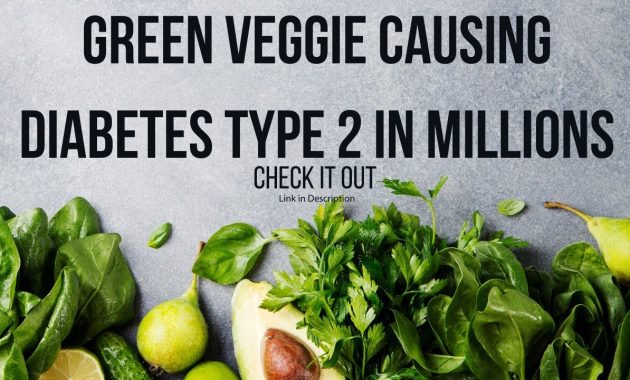
How to Go Vegan Without Compromising Diabetic Health: A Comprehensive Guide
The decision to embrace a vegan lifestyle is often driven by ethical considerations, environmental concerns, or a desire for improved health. For individuals managing diabetes, the prospect of going vegan can present a unique set of challenges and opportunities. This comprehensive guide will explore how to navigate the transition to a vegan diet while effectively managing diabetic health. The central focus remains: how to go vegan without compromising diabetic health.
Understanding the Intersection of Veganism and Diabetes
Diabetes, a metabolic disorder characterized by elevated blood sugar levels, requires careful dietary management. A well-planned vegan diet, rich in whole plant-based foods, can offer significant benefits for individuals with diabetes. However, without proper planning, the shift can lead to nutritional deficiencies or inadequate blood sugar control. This is why understanding how to go vegan without compromising diabetic health is crucial.
The key to success lies in understanding the impact of different foods on blood sugar levels, the importance of balanced macronutrient intake, and the need for regular monitoring. This article will delve into these crucial aspects, providing practical advice and evidence-based recommendations.
Benefits of a Vegan Diet for People with Diabetes
A carefully planned vegan diet can offer several advantages for individuals with diabetes:
- Improved Blood Sugar Control: Vegan diets are typically lower in saturated fat and higher in fiber, which can help improve insulin sensitivity and regulate blood sugar levels.
- Weight Management: Plant-based diets often promote weight loss or maintenance, which is beneficial for diabetes management.
- Reduced Risk of Heart Disease: Vegan diets are often lower in cholesterol and saturated fat, reducing the risk of heart disease, a common complication of diabetes.
- Increased Fiber Intake: High fiber intake helps slow down the absorption of glucose, preventing blood sugar spikes.
- Rich in Antioxidants: Plant-based diets are rich in antioxidants, which can help protect against cell damage.
These benefits highlight the potential of a vegan diet to positively impact the health of individuals with diabetes. However, it is crucial to approach the transition thoughtfully and with expert guidance. Remember, the core question remains: how to go vegan without compromising diabetic health?
Essential Nutrients and Considerations
A well-rounded vegan diet requires careful attention to specific nutrients that can be challenging to obtain solely from plant sources. These include:
- Vitamin B12: Found primarily in animal products, B12 supplementation or fortified foods are essential for vegans.
- Vitamin D: Adequate vitamin D intake is crucial. This can be obtained through supplementation, fortified foods, or sun exposure.
- Omega-3 Fatty Acids: Consider supplementing with algal-based omega-3s to ensure adequate intake.
- Iron: Plant-based iron (non-heme iron) is less readily absorbed than heme iron. Consuming iron-rich foods with vitamin C can improve absorption.
- Calcium: Ensure adequate calcium intake through fortified plant-based milks, tofu, or calcium-rich vegetables.
- Protein: Combine various plant-based protein sources like beans, lentils, tofu, and quinoa. This ensures a complete amino acid profile.
Addressing these nutritional considerations is a critical step in learning how to go vegan without compromising diabetic health. Regular blood work and consultation with a healthcare professional or registered dietitian are highly recommended.
Planning Your Vegan Diabetic Diet
Successful transition involves careful meal planning. This is crucial to maintaining stable blood sugar levels. Here’s a practical approach:
- Focus on Whole, Unprocessed Foods: Base your diet on whole grains, fruits, vegetables, legumes, nuts, and seeds.
- Control Carbohydrate Intake: Monitor carbohydrate intake, especially from processed foods and sugary drinks.
- Choose Low-Glycemic Index (GI) Foods: Prioritize foods with a low GI to minimize blood sugar spikes.
- Balance Macronutrients: Aim for a balance of carbohydrates, protein, and healthy fats at each meal.
- Read Food Labels: Pay close attention to the nutritional information on food labels. This ensures you’re aware of carbohydrate content, added sugars, and serving sizes.
- Meal Timing: Eating regular meals and snacks can help prevent blood sugar fluctuations.
By following these guidelines, individuals can create a balanced and diabetes-friendly vegan diet. This is a key factor in understanding how to go vegan without compromising diabetic health.
Foods to Prioritize
Several food groups are particularly beneficial for individuals with diabetes following a vegan diet:
- Non-Starchy Vegetables: Include leafy greens, broccoli, cauliflower, and other vegetables in every meal.
- Legumes: Lentils, beans, and chickpeas are excellent sources of fiber and protein.
- Whole Grains: Choose options like quinoa, oats, and brown rice over refined grains.
- Fruits (in moderation): Berries, apples, and pears are good choices due to their fiber content.
- Nuts and Seeds: Provide healthy fats, protein, and fiber.
- Healthy Fats: Avocado, olive oil, and flaxseed oil offer essential fatty acids.
Incorporating these foods into your diet is a cornerstone in learning how to go vegan without compromising diabetic health. Remember, variety is key to ensure you receive a wide range of nutrients.
Foods to Limit or Avoid
Certain foods can negatively impact blood sugar control and overall health. It is important to limit or avoid the following:
- Processed Vegan Foods: Many vegan processed foods are high in carbohydrates, unhealthy fats, and added sugars.
- Sugary Drinks: Soda, juice, and other sweetened beverages can cause rapid blood sugar spikes.
- Refined Grains: White bread, white rice, and pasta should be limited in favor of whole-grain options.
- Excessive Amounts of Fruit: While fruits are healthy, excessive consumption can lead to elevated blood sugar levels.
- Foods High in Saturated and Trans Fats: Minimize consumption of processed vegan foods that contain these fats.
Making informed food choices is crucial when considering how to go vegan without compromising diabetic health. Careful attention to these guidelines is critical.
Practical Tips for Transitioning to a Vegan Diet
The transition to a vegan lifestyle should be gradual and well-planned. Here’s some advice to help you succeed:
- Consult a Healthcare Professional: Discuss your plans with your doctor or a registered dietitian. They can provide personalized guidance.
- Start Slowly: Gradually introduce vegan meals into your diet. This allows your body to adjust.
- Learn to Read Food Labels: Become familiar with the nutritional information on food products.
- Plan Your Meals: Plan your meals and snacks in advance to ensure you’re meeting your nutritional needs.
- Cook at Home: Preparing your own meals gives you control over ingredients and portion sizes.
- Find Vegan Resources: Explore vegan cookbooks, websites, and online communities for recipes and support.
- Monitor Blood Sugar Regularly: Track your blood sugar levels to assess the impact of your diet.
- Consider Supplements: Discuss the need for supplements, such as B12 and vitamin D, with your doctor.
These practical steps will ease the transition. They are vital to successfully learning how to go vegan without compromising diabetic health.
Monitoring and Adjusting Your Diet
Ongoing monitoring is essential. It ensures your vegan diet supports your diabetic health. Consider the following:
- Regular Blood Sugar Checks: Monitor your blood sugar levels before and after meals. This helps assess the impact of your food choices.
- Hemoglobin A1c (HbA1c) Tests: This test provides an average of your blood sugar levels over the past two to three months.
- Track Your Food Intake: Keep a food diary or use a food tracking app. This allows you to identify patterns and make adjustments.
- Consult with Professionals: Regularly consult with your doctor and a registered dietitian. They can make recommendations based on your individual needs.
- Be Patient: It may take time to find the right balance. Be patient with yourself and make adjustments as needed.
By monitoring and adjusting your diet, you can optimize your blood sugar control and overall health. This is a vital part of learning how to go vegan without compromising diabetic health.
Potential Challenges and Solutions
Transitioning to a vegan diet can present challenges. Here are some common hurdles and how to overcome them:
- Nutrient Deficiencies: Address this by supplementing and eating a variety of plant-based foods.
- Social Situations: Plan ahead and bring your own food to social gatherings.
- Meal Planning: Create meal plans and prepare meals in advance to stay on track.
- Food Cravings: Identify your cravings and find healthy vegan alternatives.
- Lack of Time: Simplify your meals and choose quick and easy recipes.
Anticipating and addressing these challenges is key to successfully learning how to go vegan without compromising diabetic health. Support and planning are critical.
Recipes and Meal Ideas
Here are some sample meal ideas for individuals with diabetes following a vegan diet:
- Breakfast: Oatmeal with berries, nuts, and seeds, or tofu scramble with vegetables.
- Lunch: Large salad with lentils, chickpeas, and a vinaigrette dressing, or a whole-grain wrap with hummus and vegetables.
- Dinner: Vegetable stir-fry with tofu or tempeh and brown rice, or a bean and vegetable chili.
- Snacks: A handful of nuts, a piece of fruit, or a small serving of vegetables with hummus.
Experiment with different recipes. Find meals you enjoy while meeting your nutritional needs. Learning how to go vegan without compromising diabetic health involves exploring diverse and delicious options.
Conclusion: Embracing Veganism with Confidence
Embracing a vegan lifestyle while managing diabetes is achievable with careful planning, informed choices, and consistent monitoring. By understanding the nutritional needs, prioritizing whole foods, and making informed decisions, individuals can reap the benefits of a plant-based diet. This article has provided a comprehensive guide on how to go vegan without compromising diabetic health. Remember to consult with healthcare professionals for personalized advice and support. With the right approach, you can enjoy a healthy and fulfilling vegan journey while effectively managing your diabetes.
[See also: The Best Vegan Protein Sources for Diabetics] [See also: Vegan Meal Planning for Diabetes: A Beginner’s Guide] [See also: The Role of Fiber in Managing Diabetes] [See also: Top Vegan Foods for Blood Sugar Control] [See also: How to Manage Diabetes with a Plant-Based Diet]

